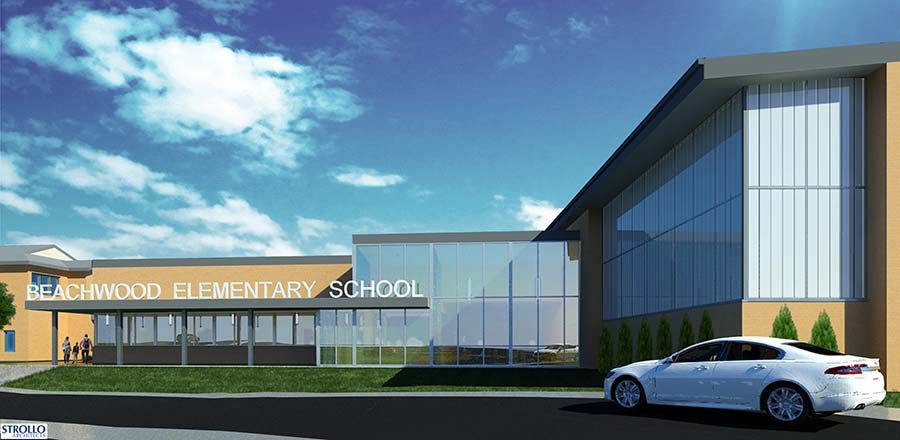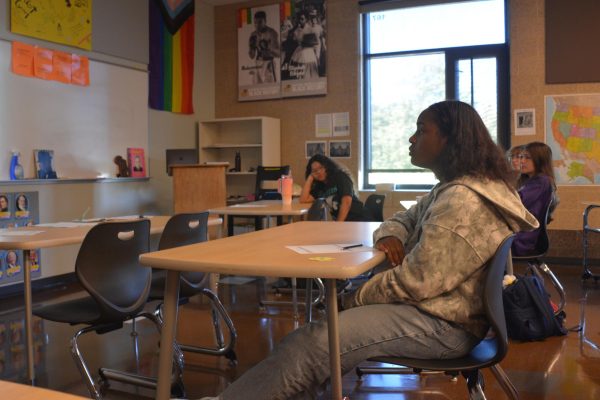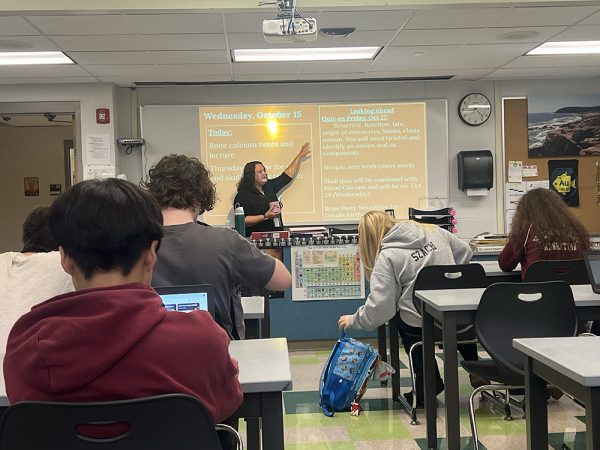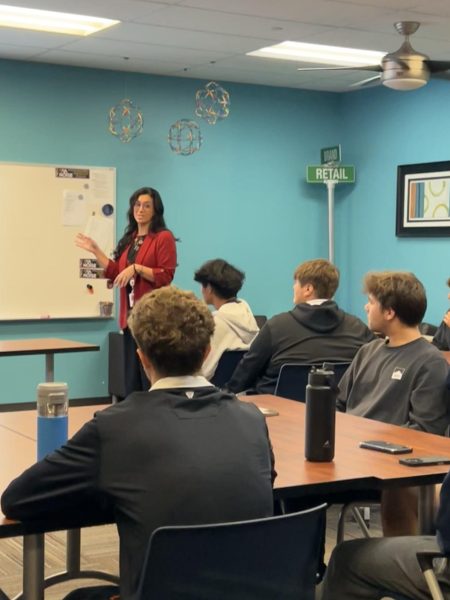Elementary Consolidation Delayed Indefinitely
Voters to Reconsider Operating Levy in November
The bond to fund the controversial plan to replace Bryden and Hilltop with a consolidated elementary school will not appear on the November ballot. Instead, it may appear on the ballot in 2020.
Voters rejected the school consolidation bond last May when it was combined with the operating levy. According to the Cuyahoga County Board of Elections, the combined ballot measure lost by 5 votes with 2,035 voting against it, and 2,030 voting for it.
The district will ask voters in November to approve a 5.9-mil operating levy, the same amount that was defeated in May.
Beachwood City Schools Treasurer Michele Mills explained that the district is considering how to move forward regarding both school buildings.
“Our feedback was the voters did not like the combined levy but seem to specifically object to the bond issue to consolidate the elementary buildings,” she said.
Beachwood Superintendent Dr. Bob Hardis feels it is necessary for the operating levy to reappear in November.
“[W]e have to come out for new operating revenue, and if we don’t obtain it we will have to make very significant cuts to our programs and services,” he said.
According to School Board President Dr. Brian Weiss, the District has already made some cuts to administrative costs, supply and extra-curricular budgets. Weiss explained that these cuts could be restored if the levy passes in November, but he was not certain that the District would opt to do that.
Mills explained that funding cuts were necessary to eliminate deficits.
“I cannot certify that the funds are available to cover the contract in totality, so we made budget reductions,” she said. “I cannot count on the passage of a levy to pay for any contract. I can only note that the district is placing a levy on the ballot in order to eliminate a deficit.”
“… The State legislature and governor balanced the state budget and reduced state income taxes by shifting the burden back to local communities by cutting our revenues and increasing our expenses,” she added. “It’s a huge tax shift.”
The school board will wait until at least 2020 to put the consolidation bond on the ballot again, taking into account the community’s position on the bond.
“[T]he community spoke,” Weiss said. “I think it’s our obligation to listen to the community, to regroup, and revisit the whole process.”
Hardis echoed these thoughts.
“[W]e heard loud and clear from at least some portion of Beachwood voters that they had questions and concerns about the consolidation plan and some were outright against it for a variety of reasons,” he said.
Beachwood voter Rance Mack voted against the consolidation bond in the spring because he felt that he didn’t have enough information about the changes.
“I did not know enough information about how everything was going to go in terms of the change, in terms of building, when it was gonna start, how much exactly it was gonna cost, how much my taxes are gonna go up, when it was gonna go up… all the nitty-gritty stuff that seemed like it wasn’t publicized,” he said.
Hardis intends to use the time between now and 2020 to educate voters on why district leaders believe that the consolidation is necessary.
Hardis says the alternative is renovating Bryden and Hilltop, which would cost almost the same as constructing a new building.
The consolidation plan would cost $38 million, while the renovation would cost $37 million.
According to Hardis, until the choice is put to the voters again, the district can keep Hilltop and Bryden “limping along”.
“The Board has publicly committed to studying the issue further with input from all stakeholders and has made no decision at this time about how to address the aging elementary buildings,” Mills added.
Mack stated that he would still like more information before voting.
“I still think I need to see more information,” he said. “I’m not just going to blindly vote.”
“I think too many people vote for something or someone and they know nothing about [it], they just vote,” he added.
Hardis remains convinced that building a new school will be a more suitable option for the long run and explains that by constructing a new consolidated elementary building, specialized classrooms can be built for subjects like music, art and science.
Currently, Hilltop and Bryden have generic classrooms that aren’t well-suited for these specific uses. Renovation will not address this issue.
A 2015 Plain Dealer article detailed the consolidation plan, addressing specific issues that the new building would solve. The proposed new school would connect to the current board and administrative offices, and have separate wings comprised of different age groups.
The front entrance of the building would increase building security as visitors would have to be buzzed into a vestibule upon entering the building. In the event of emergency there would be another exit to the school, adding another layer of security.
Hardis stated that the new consolidated building would have two separate playgrounds: one geared for the younger students and one specialized for the older students. It would also feature more efficient systems, such as centralized air-conditioning, saving the administration $500,000 dollars per year.
The consolidation plan calls for Bryden to be torn down and rezoned into a residential area. Hilltop would also be demolished with the exception of the gym. Hardis explained that the gym is used by the community year-round and would be a valuable part of the recreational area that would replace Hilltop.
The area would be community-oriented, seeing use from various age groups coming from all over Beachwood. The baseball fields would be enhanced and new soccer fields would be built. Weiss added that the cost of building this recreational center was not included in the estimated $37 million it would cost to consolidate the schools.
Hardis and the Beachwood Administration feel confident about the feasibility of their plan, however they are open to new ideas from the community.
“[K]eep an open mind to what we have learned over many years of studying these buildings and developing these plans,” Hardis said. “[W]e promise them that we will keep an open mind to their concerns and their ideas for better ways to do what we are trying to do…It will truly be a two-way dialogue.”

Ian Stender began writing for the Beachcomber in 2018. He covers all types of stories. In addition to writing for the Beachcomber, he’s on the baseball...





![“My parents have always said that education is important. My parents are Chinese immigrants, I'm Chinese American, [and that's a] value that has always been ingrained in our community,” said Senior Lyndia Zheng, pictured with Tony Zheng](https://bcomber.org/wp-content/uploads/2025/10/DSC_4244-600x400.jpg)






